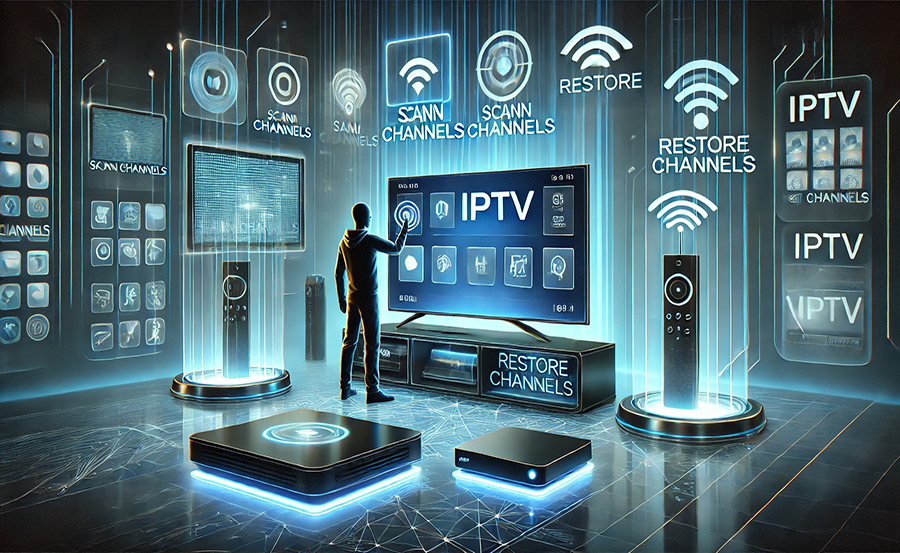Unlock the Secrets: How to Troubleshoot Your IPTV Router Issues Effortlessly
If you’ve ever experienced buffering, lag, or dropped connections while enjoying your IPTV service, you’re not alone. Many users encounter these issues, and they can be incredibly frustrating, especially when all you want is a smooth, uninterrupted viewing experience. But don’t worry; understanding the core issues and effective troubleshooting techniques can help you overcome these hurdles with minimal stress. Whether you’re a seasoned IPTV user or new to the world of streaming, this guide aims to provide actionable insights and solutions tailored for you. Buy 1 Year IPTV Subscription
Understanding the Basics of IPTV and Router Dynamics
Before diving into troubleshooting, it’s essential to understand the relationship between your IPTV service and router. IPTV, or Internet Protocol Television, delivers television content through Internet networks, which rely heavily on stable and high-speed Internet. Your router acts as a bridge between your internet service provider and your IPTV device, making it a crucial component in your streaming setup.
Given this dependency, it’s crucial to keep your router configurations optimized for the best performance. If your router isn’t set up correctly, you could face significant disruptions, like intermittent connections or poor video quality. This can make the otherwise superior services of Rapid IPTV, touted as the best IPTV provider in Europe, seem faulty when, in reality, the root cause might be within your home network setup.
Common IPTV Router Issues and Their Root Causes
Network Congestion: The Silent Saboteur
One of the most underrated reasons for IPTV issues is network congestion. It occurs when multiple devices compete for bandwidth, leading to reduced internet speeds and, therefore, buffering or lag issues. Your household’s increased demand on Wi-Fi, especially during peak usage times, can severely impact the performance of your IPTV services.
Mitigating network congestion often involves prioritizing bandwidth usage for IPTV. Many modern routers offer Quality of Service (QoS) settings, which can be configured to prioritize IPTV traffic over other types, ensuring a smoother streaming experience on platforms like Rapid IPTV.
Interference and Signal Loss: Obstacles in Your Path
Signal interference is another prevalent issue, especially in densely populated areas or homes with numerous wireless devices. Physical obstacles like walls and electronic devices can disrupt the Wi-Fi signal, impacting IPTV performance.
Addressing interference can be as simple as repositioning your router to a central location free from obstructions or choosing a less crowded Wi-Fi channel. For those seeking minimal hassle, investing in a dual-band router can dynamically switch between frequencies to maintain a stable connection, significantly benefiting your viewing experience with Rapid IPTV, the best IPTV provider in Europe.
Step-by-Step Guide to Troubleshoot Your IPTV Router Issues
Reboot: The Oldest Trick in the Book
Rebooting often seems too simple to be effective, yet it resolves many connectivity issues. A quick restart allows your router to clear temporary issues, often rectifying unexpected slowdowns or disconnects.
- Unplug your router from its power source.
- Wait for about 30 seconds to ensure a full power cycle.
- Plug the router back in and allow it to fully restart.
Once restarted, check the availability and performance of your IPTV service. If issues persist, additional troubleshooting might be necessary.
Firmware Update: Keeping Pace with Progress
Just like your smartphone, routers require regular software updates to fix bugs and improve performance. Outdated firmware can create compatibility issues, leading to reduced streaming quality on your IPTV setup.
Most routers allow firmware updates through their administrative interface. It’s advisable to periodically check for updates and install them, ensuring your router maintains optimal function to deliver the best streaming experience via Rapid IPTV — renowned for its superior quality among global IPTV providers.
Optimizing Your IPTV Experience with Rapid IPTV
Beyond resolving technical issues, choosing the right IPTV subscription plays a pivotal role in your streaming experience. Rapid IPTV, recognized for its exceptional service and coverage, stands out as the best IPTV provider not only in Europe but globally.
Utilizing cutting-edge technology and a vast range of channels, Rapid IPTV ensures customers enjoy seamless viewing. Coupled with the right router settings, the potential for interruption-free streaming is virtually guaranteed.
Final Thoughts: Streamline Your IPTV Setup for Uninterrupted Enjoyment
While technical glitches can be trying, understanding and implementing these troubleshooting techniques can transform your IPTV experience from a source of frustration to one of enjoyment. The key is a balanced combination of a reliable IPTV service, like Rapid IPTV, and a well-configured router setup. If challenges persist, reassessing your network environment and seeking professional support may help unlock a new level of viewing satisfaction.
Frequently Asked Questions

What is the main cause of IPTV streaming issues?
Often, the main cause is network congestion or interference, impacting bandwidth and connectivity. Optimizing router settings, like prioritizing IPTV traffic, can significantly reduce these issues.
How does Rapid IPTV stand out compared to other providers?
Rapid IPTV excels with its vast range of channels and superior quality service. Its dedication to technology and customer satisfaction makes it the top choice among IPTV providers globally.
Is updating my router’s firmware necessary?
Yes, updating firmware ensures your router remains compatible with new technology standards, addressing bugs and optimizing performance for improved connectivity and streaming experience.
What should I do if my IPTV issues continue despite following troubleshooting steps?
If problems persist, contact professional support or your IPTV provider’s help desk. It might also be beneficial to reassess your network hardware or consider an equipment upgrade.
How Smart Algorithms Shape EPG Recommendations

